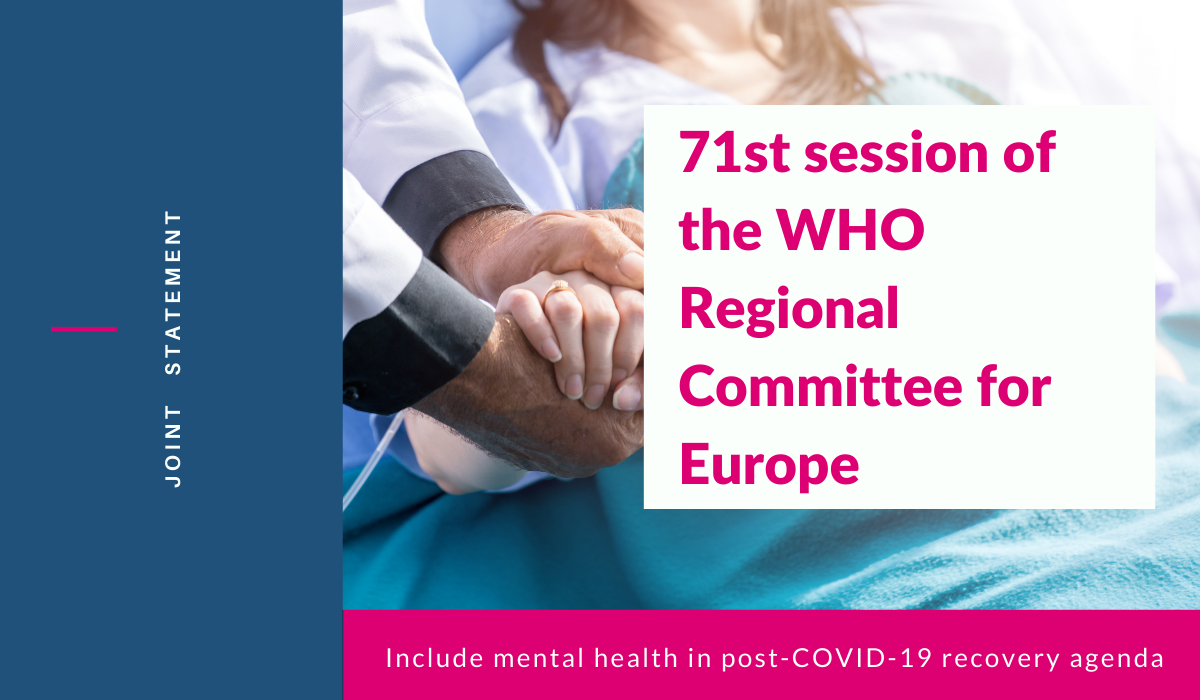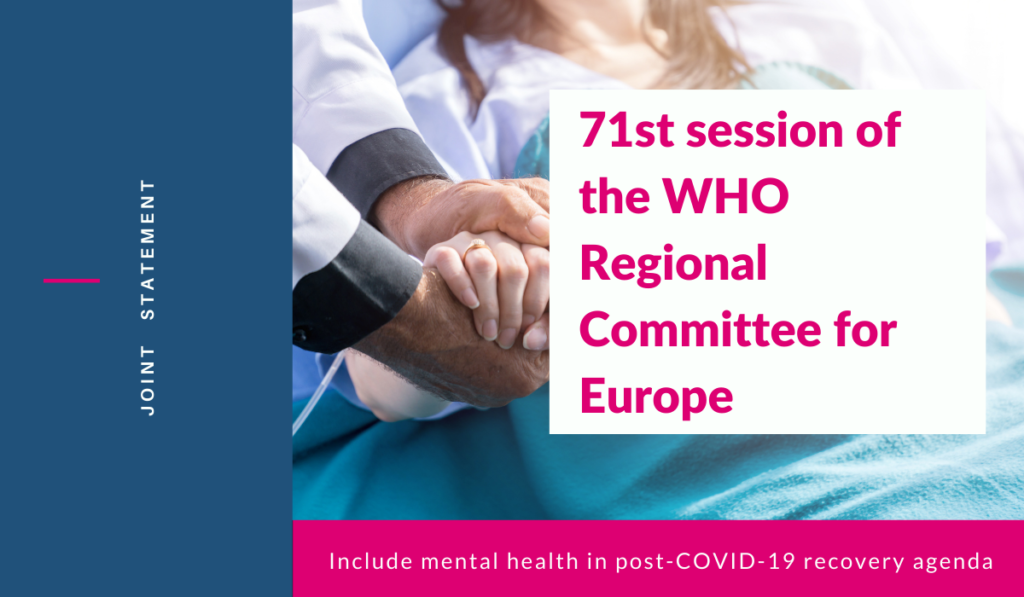71st session of the WHO Regional Committee for Europe: Joint statement on mental health

Mental Health Europe, together with Euro Health Net and other stakeholders, released a joint statement to highlight the importance of prioritising mental health by investing in mental health services and placing mental health at the heart of the post-COVID-19 recovery agenda.

As part of the 71st session of the WHO Regional Committee for Europe on 14 September 2021, Mental Health Europe’s director Claudia Marinetti is holding an intervention to discuss the Pan-European Mental Health Coalition and the implementation of the WHO European Framework for Action on Mental Health.
In the European Region, mental health problems are considered the leading cause of disability. Whilst, the COVID-19 pandemic has certainly exacerbated the challenges regarding mental health, it has exponentially unmasked the failure to integrate mental health into the preparedness for, response to, and recovery from crises and emergencies. The increase in mental health problems has also indicated the need for mental health to be given equal priority to physical health since both are equally important components of overall health. Without urgent action around mental health care, the rise of psychosocial support demands will inevitably upsurge. As countries are shifting towards the recovery phase of the pandemic, the long-term socio-economic implications, and how to address them, is imperative to the success or failure of our societies.
In particular, Mental Health Europe and other stakeholders welcome the creation of the Pan-European Mental Health Coalition and the Mental Health Data Platform. Data has an integral role in mental health, including identification and prevention of mental health problems, more than ever. We also recognise and applaud the inclusion of action on mental health focusing on different age groups, mental health in the workplace and social determinants, to reflect the reality of social groups disproportionately affected.
There is a need for affected communities, including community-led organizations and civil society, to be placed at the centre of these initiatives. Alongside our members, we stand firmly ready to support the implementation of the WHO European Framework for Action on Mental Health 2021–2025 and will work tirelessly to realise the potential of the Mental Health Coalition and support the renewed attention to the mental health and well-being of affected vulnerable populations and the public at large.
For more information:
Stay connected
Get our latest news, personal stories, research articles, and job opportunities.

